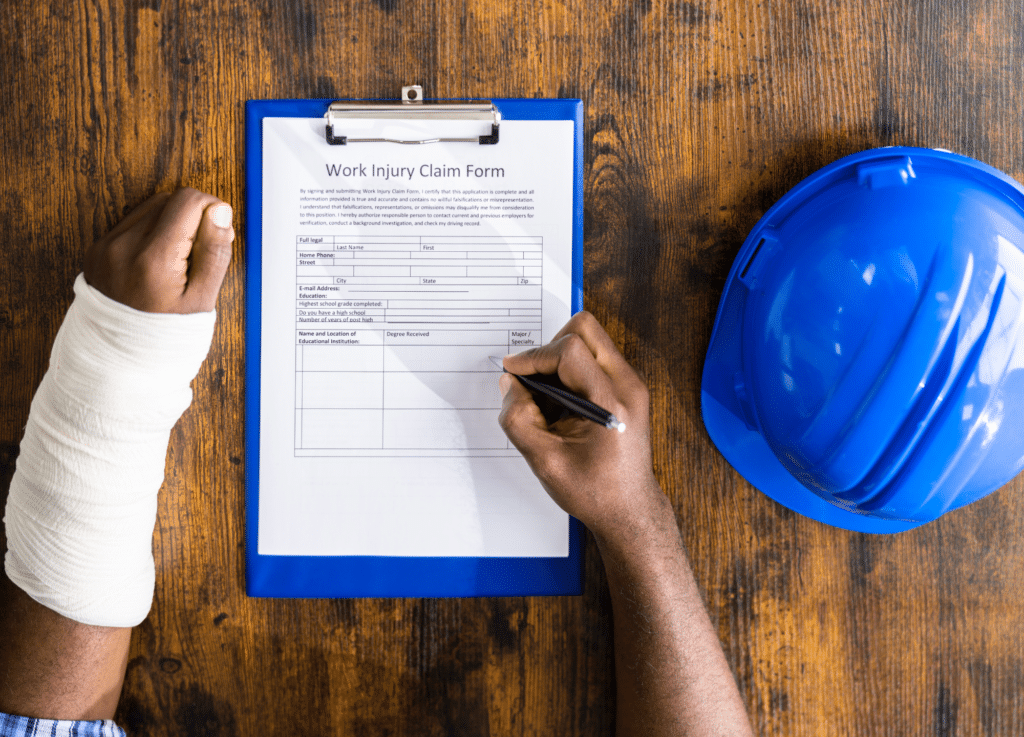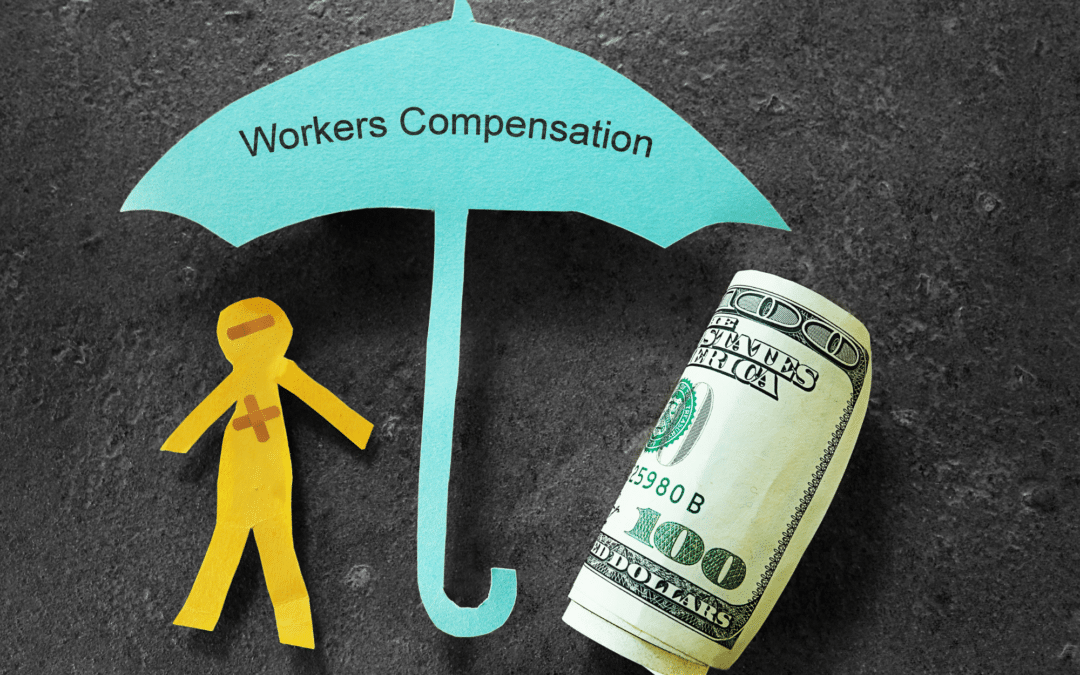Navigating the seas of employment-related injury claims can be as challenging as it is crucial, especially in a state as legalistically rigorous as California. For both the injured worker and the employer managing the repercussions, understanding the nuances between two primary forms of redress, workers’ compensation, and personal injury claims, can prove decisive.
In this detailed exploration, we will unravel the essential differences between these two legal pathways, provide insights into the complexities of Californian legislation, and stress the importance of an informed approach. Whether you are an injured employee, a legal professional, or an HR manager, this guide is designed to equip you with the knowledge you need to safeguard your rights and fulfill your responsibilities within the framework of California’s employment laws.

Workers Compensation in California
Defining Workers Compensation
In its essence, workers’ compensation is a form of insurance providing wage replacement and medical benefits to employees injured in the course of employment. Unlike personal injury claims, workers’ comp is a no-fault system, meaning that employees are entitled to benefits regardless of who caused the injury. Employers provide this compensation as a trade-off, exempting them from direct lawsuits related to workplace injuries.
This system of workers’ compensation insurance ensures a smoother and less confrontational process for both the injured person and the employer. By eliminating the need for a legal finding of fault, workers’ compensation claims typically allow for quicker resolution and disbursement of benefits. However, this does not mean that navigating workers’ compensation claims is without its challenges. Both the injured employee and the employer must adhere to strict reporting and documentation requirements. Additionally, while workers’ compensation provides essential support, it also limits the types of compensation an injured person can recover, focusing primarily on economic losses rather than non-economic damages like pain and suffering.
The Californian Perspective
California boasts one of the most comprehensive workers’ compensation systems in the country. The state’s program encompasses a wide range of benefits, including medical care, temporary disability benefits, permanent partial disability benefits, and vocational rehabilitation services for qualifying injuries.
Eligibility and Benefits
To be eligible for workers’ comp in California, an employee must:
- Sustain an injury or illness that is work-related
- Notify their employer within 30 days of the incident
- File a workers’ compensation claim within a prescribed period from the date of the injury
The benefits provide crucial support for injured workers, ensuring they receive necessary medical treatment and financial assistance. The specifics of eligibility and benefits can vary widely based on the circumstances of the injury and the prognosis for recovery.
Personal Injury Claims in California
Understanding Personal Injury Claims
Personal injury claims stem from accidents or incidents that result in harm to an individual due to the negligence of another party. In California, a personal injury lawsuit seeks to hold the responsible party liable for the damages resulting from the accident.
The Filing Process
Initiating a personal injury claim in California involves several key steps:
- Determine Liability: The injured party or their legal representative must establish that another party was negligent and caused the injury.
- Seek Compensation: The claimant will pursue compensation for various damages, including medical expenses, lost wages, and pain and suffering, through negotiation or litigation.
- Statute of Limitations: California sets specific time limits for filing personal injury claims, typically two years from the date of the injury.
Compensation and Legal Proceedings
In personal injury cases, the compensation sought encompasses both economic and non-economic damages, such as past and future medical bills, out-of-pocket expenses, lost income, and intangible losses like pain, suffering, and emotional distress. Legal proceedings can lead to settlements or jury awards, but navigating the complexities of California’s legal system is paramount to ensuring a fair outcome.
Key Differences Between Workers Compensation and Personal Injury Claims
Legal Frameworks and Liabilities
Workers’ compensation operates under administrative law, creating a process that is more streamlined and less adversarial. Personal injury claims, on the other hand, fall under civil tort law, involving courtroom procedures and an emphasis on establishing fault and damages.
Compensation Structures
The types of compensation differ vastly between the two systems. Workers’ comp predominantly covers medical expenses and lost wages, with limited provisions for pain and suffering. Personal injury claims, however, can include a broader range of damages, potentially leading to higher compensations.
Time Limitations and Procedural Variances
The timelines for reporting injuries and filing claims are distinctly shorter and more rigid in workers’ compensation. In contrast, personal injury claims have longer statutes of limitations, affording more time for investigation and legal preparation.
Implications for California Employees, Legal Professionals, and HR Managers
Benefit to the Injured Worker
Understanding the options available following a workplace injury in California is a vital first step toward securing the appropriate compensation. Distinguishing between workers’ compensation and personal injury claims clarifies the scope of potential benefits and helps injured workers make informed decisions about their legal recourse.
Relevance for Legal Professionals
For attorneys specializing in personal injury or workers’ compensation law, a deep understanding of the differences between the two is essential. This knowledge ensures that legal strategies are properly aligned with the distinct requirements of each claim type, maximizing the chance of a favorable outcome for their clients.
Strategic Oversight for HR Managers
HR managers play a critical role in facilitating the claims process for injured employees. Comprehending the unique features of workers’ compensation, as well as the potential for personal injury claims, allows HR professionals to guide employees through the system effectively, while protecting the employer’s interests.
The dual tracks of workers’ compensation and personal injury claims in California provide crucial avenues of recourse for workers harmed on the job. By grasping the intricate differences between them, employees, legal professionals, and HR managers can approach injury claims with confidence and pragmatism.
For employees, knowing your rights is the first step to securing the support you deserve. For attorneys and HR professionals, it is the foundation upon which effective advocacy and management are built. Ultimately, the robust and specialized nature of these legal mechanisms reflects California’s commitment to upholding the well-being and rights of its workforce.
Legal advice is highly recommended to ensure the appropriate avenue is pursued based on the circumstances of the injury. If you are grappling with the aftermath of a workplace accident, or seeking guidance on the best course of action for your team or business, our devoted legal professionals are poised to assist. Engage with us and take proactive steps toward understanding and harnessing the complexities of the Californian employment injury landscape.

Frequently Asked Questions (FAQs)
What role does the insurance company play in a workers’ compensation case?
The insurance company, typically employed by the employer, is responsible for issuing workers’ compensation benefits, including medical expenses and temporary disability payments. They assess the claim’s validity, determine the benefits, and may engage in settlement negotiations if applicable under California law.
When should I contact a personal injury lawyer for a work injury?
You should consider contacting a personal injury lawyer if you believe your work injury was due to the negligence of a third party (not your employer or coworker). A lawyer can evaluate if you have a viable claim under California law and guide you through the legal process, potentially leading to a settlement that compensates for damages not covered under workers’ compensation benefits.
How do temporary disability payments work under workers’ compensation benefits?
Temporary disability payments are designed to compensate injured workers for lost wages due to a work injury that temporarily prevents them from performing their job. These payments are a fraction of the worker’s average weekly earnings before the injury and continue until the worker can return to work or reaches maximum medical improvement.
Can I pursue a workers’ compensation case and a personal injury case for the same work injury?
Under California law, you typically cannot sue your employer for a work injury if you are receiving workers’ compensation benefits. However, if your injury was caused by a third party’s negligence (not your employer or coworker), you might pursue a personal injury lawsuit against that party while still receiving workers’ compensation.
What is the appeal process if my workers’ compensation claim is denied?
If your workers’ compensation claim is denied, you have the right to appeal the decision. The appeal process involves filing a claim with the Workers’ Compensation Appeals Board within a specific timeframe. It may require attending hearings and presenting evidence to support your claim under California law.
How do settlement negotiations work in personal injury claims related to work injuries?
Settlement negotiations in personal injury claims can occur at any stage of the legal process. Both parties, often through their attorneys, negotiate a compensation amount that the defendant (or their insurance company) will pay to the plaintiff to compensate for damages like medical bills, lost wages, and pain and suffering. Agreements are usually reached before the case goes to trial.
If the defendant lives in a different state, where should I file my personal injury lawsuit for an accident that occurred at work?
The correct venue for filing a personal injury lawsuit typically depends on where the accident occurred and where the defendant lives or does business. Under California law, if the work-related accident occurred in California, you likely would file the lawsuit in California, even if the defendant resides elsewhere.
What example could demonstrate negligence in a work injury case?
An example of negligence could include an employer who fails to properly maintain machinery, leading to an accident and injury to an employee. Negligence involves the failure to take reasonable care to prevent harm, and demonstrating this is essential in a personal injury case.
How soon should I contact an attorney after experiencing a work injury?
It’s advisable to contact an attorney as soon as possible after a work injury, especially if you believe your injury was due to someone else’s negligence or if your workers’ compensation claim is complicated. Early consultation can ensure you understand your rights and options under California law, and can help in gathering evidence and meeting deadlines.

